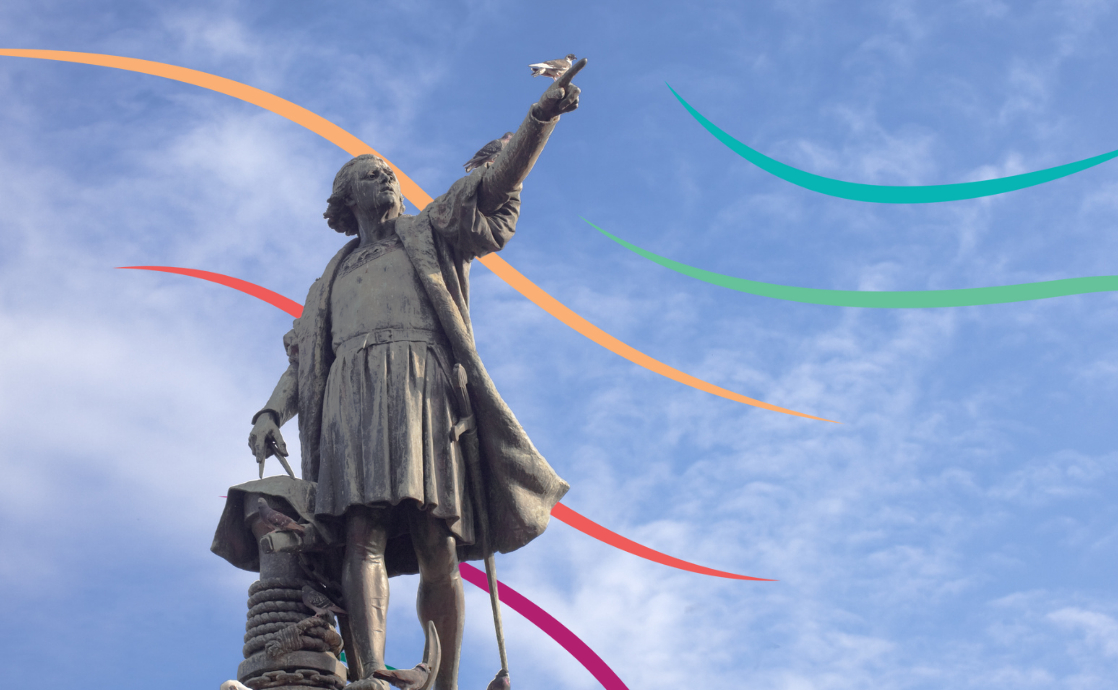Throughout history, the fervent pursuit of new territories has often been accompanied by a collateral motive: the spread of Christianity. Yet, when examining the actions of early explorers, one must ponder a provocative question: did they embody the tenets of their faith, or did they engage in coercive practices that belied Christian teachings? This inquiry unfolds in the paradigm of cultural encounters and serves as a lens through which one can scrutinize the intertwining threads of faith, ambition, and morality.
To parse this complex issue, it is imperative to understand the historical context in which these explorers operated. Unearthing details about significant expeditions during the Age of Exploration — a period spanning the 15th to the 17th centuries — reveals a tapestry of motivations behind exploration. Driven by the allure of wealth, territorial expansion, and the propagation of Christianity, many explorers embarked on voyages that would culminate in the colonization of vast regions.
Ponder the roles of figures such as Christopher Columbus, Hernán Cortés, and Vasco da Gama. Each embarked on their journeys with the express intention of spreading Christianity. Columbus, for instance, viewed his quest as an opportunity to evangelize the indigenous peoples of the Americas. Yet, the inquisitive mind must question whether his actions truly mirrored the ethos of Christian compassion, or whether they instead reflected coercive strategies masked in theological righteousness.
In the case of Cortés, his conquest of the Aztec Empire was replete with violence and subjugation. Although he justified his military strategies as a means to convert the local population to Christianity, the collateral damage inflicted upon indigenous communities raises ethical queries about the degree of coercion employed in the guise of evangelization. Does the imposition of a religious belief upon a people, accompanied by violence and intimidation, encapsulate the essence of genuine belief? Or does it epitomize coercion at its starkest?
Transitioning to the maritime expeditions of Vasco da Gama, who sought to establish trade routes as well as spread Christianity, one similarly grapples with the juxtaposition of faith and exploitation. While his endeavors resulted in the establishment of Christian communities in newly explored territories, they also precipitated economic and cultural domination. This convergence of influence and coercion prompts a critical examination of the moral dilemmas faced by these early navigators. Were their religious convictions undermined by their imperialistic aspirations?
Perhaps a salient aspect of early exploration lies in the evolution of the concept of ‘Christendom.’ As exploration intensified, the notion morphed into a justification for territorial claims, often portraying non-Christian lands as domains in need of salvation. This ideological framework can be viewed as a form of cultural imperialism, dismissing the intrinsic validity of indigenous beliefs and practices in favor of a singular narrative. Such a paradigm leads one to question: is it appropriate to foster religious beliefs through coercive means? Can faith truly flourish in an environment wrought with subjugation?
The implications of these early explorations extend beyond mere historical events; they echo in contemporary discussions surrounding missionary work and cultural sensitivity. In modern contexts, the dialogue surrounding religious dissemination often emphasizes the importance of consent and respect for cultural divergence. Engaging respectfully with other beliefs requires an introspective examination of one’s intentions. The question arises: how can one balance the conviction to share one’s faith with the imperative to honor the autonomy of others?
To delve deeper into the nuances, one might explore the theological underpinnings of coercive conversions. Christianity, at its core, espouses principles of love, compassion, and voluntary discipleship. Ironically, when the act of conversion is underpinned by coercion, it subverts the very doctrine that advocates for faith as a personal and voluntary journey. This disjunction illustrates the dichotomy that exists when faith intersects with conquest. Thus emerges the thesis that the legacy of early explorers, while at times cloaked in a semblance of piety, often reveals deeper contradictions inherent in their practices.
Moreover, it is essential to recognize the agency of indigenous populations. Historical narratives often overlook the voices of those who encountered European missionaries and explorers. These communities possessed their own belief systems, rich cultures, and potent resistances to imposed ideologies. The encounters were not merely unilateral; they constituted a complex interplay of negotiation, adaptation, and resistance, indicating that the process of religious dissemination was not solely a top-down approach.
In reexamining such historical accounts, contemporary scholars and practitioners have the opportunity to derive lessons applicable to modern religious interactions. The pitfalls of coercion and the ethical ramifications of forced belief remain pertinent in today’s globalized society. As individuals and communities grapple with the legacies of colonialism and missionary endeavors, cultivating an attitude of humility, respect, and genuine dialogue emerges as a beacon for possible reconciliation.
Ultimately, the question of whether early explorers spread Christianity through coercion poses a challenge not only to historical understanding but also to present-day beliefs and practices. By reflecting critically on these events, one can gain insight into the complexities of faith, ethics, and cultural exchange. Such reflections beckon us towards a future where religious engagement is predicated on mutual respect and genuine understanding, rather than coercive imposition, leading us to a more enriched coexistence in a pluralistic world.
